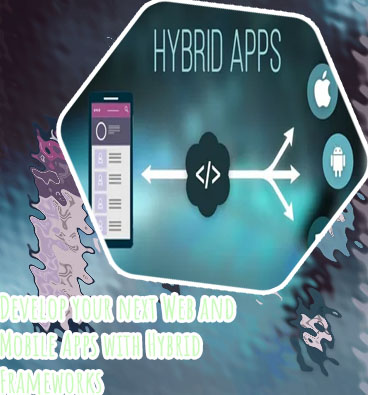
Best framework for hybrid app development
You’re in good company. Ionic powers millions of apps at some of the smartest companies in the world.
Still, the success of your app depends highly on the technology used to create it. The mobile development framework defines the capabilities and functionalities of the application. So, now you must pick a framework for your project. This article discusses the top five mobile app development frameworks. Have a look. Best hybrid development framework Hybrid applications can run on both iOS and Android with the same base code since they do not have to develop separate codes for both platforms.
Android ios hybrid app
Progressive web apps are the result of advancements in browser technologies. Modern browsers let you give your users a native-app-like experience from the web app itself. You can achieve this by integrating a JavaScript framework around your existing web app. Your progressive web app can send notifications via the mobile browser, track user location, and so on. Like hybrid apps, progressive web apps also lie between native and web apps. However, there are some key differences. Build apps for any screen If you want your business to thrive in the 2020s and beyond, you need to go mobile. The professional app developers at Tateeda combine years of experience with in-depth knowledge of mobile application development, using the NativeScript framework to design high-performing apps that wow your customers. We work closely with our clients to ensure your mobile app meets all your requirements for design, functionality, stable performance and user experience. Contact us today, and see why Tateeda is a leader in custom software solutions for 21st Century businesses.
Other Platforms to Consider
Deploy to multiple devices from a single codebase: mobile, web, desktop, and embedded devices. Trend: Flutter The hybrid app frameworks are the ‘Avengers’ behind the triumph of hybrid mobile apps. Developers and business owners are actually making most of these advanced frameworks, useful for creating hybrid mobile applications in a cost-effective way.
